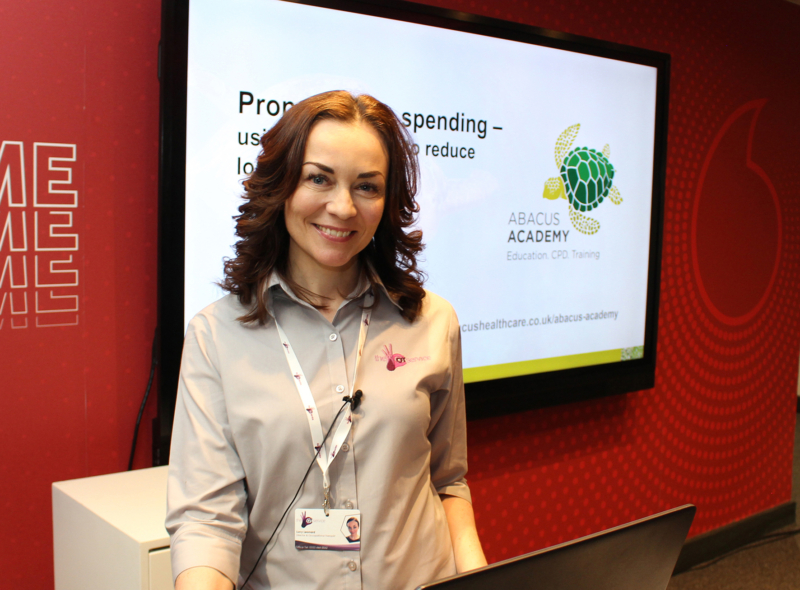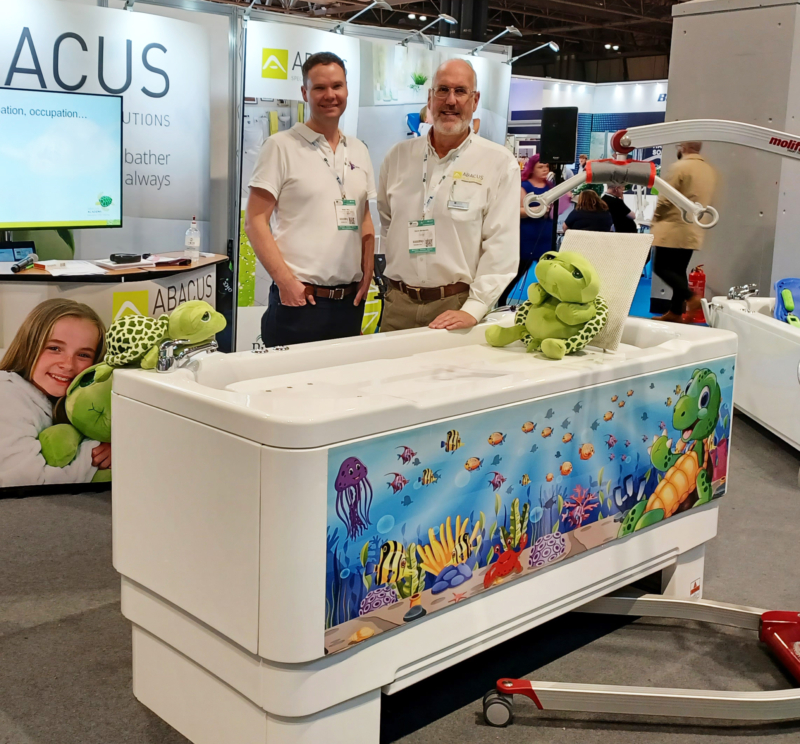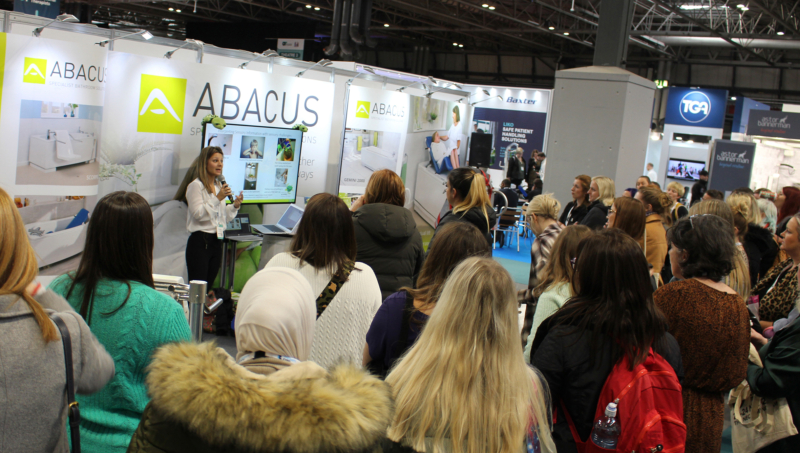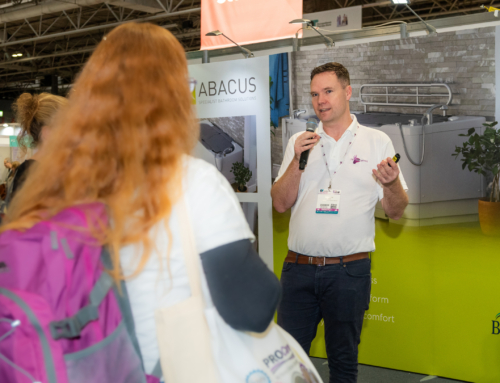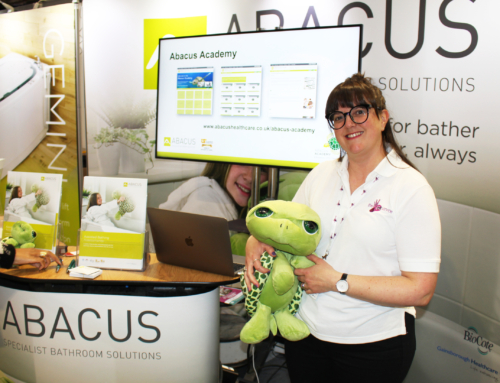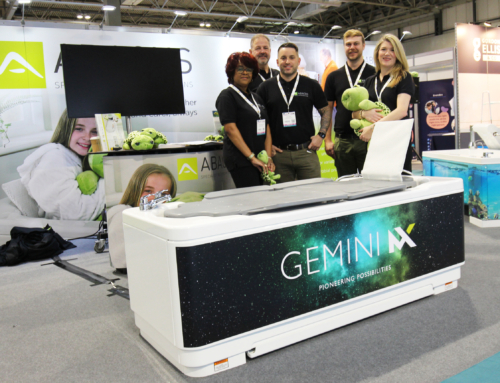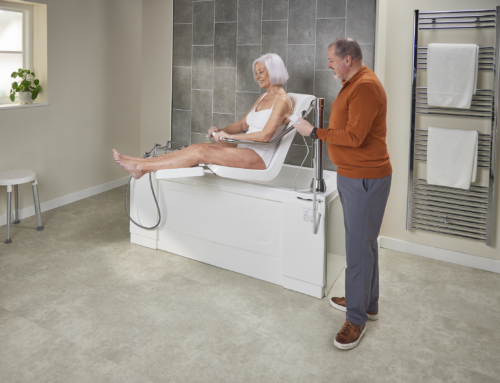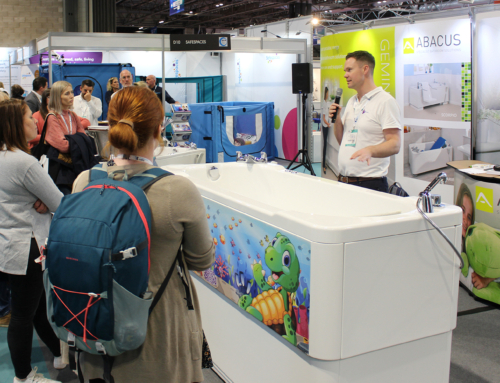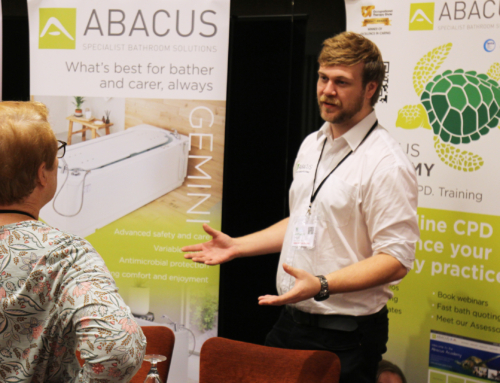Abacus to present popular assisted bathing CPD seminars at OT Show 2023
Abacus Specialist Bathroom Solutions, in association with The OT Service, will be presenting its popular on-stand and theatre-based CPD sessions at the Occupational Therapy Show (Stand F25, NEC, 22–23 November 2023).
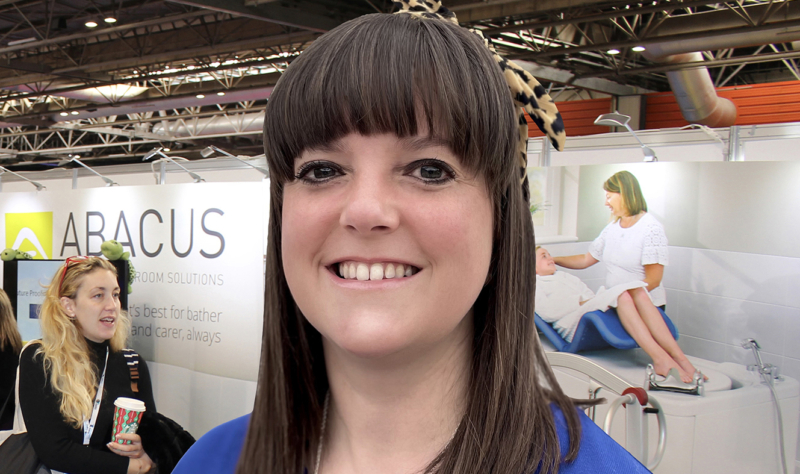
Winner of the ‘best on-stand education’ at the 2022 OT Show, Abacus is a leading manufacturer of accessible baths for adults and children with disabilities. Part of the Gainsborough Healthcare Group, Abacus works closely with Occupational Therapists, bathers and families to ensure positive bathing outcomes for all. Its Abacus Academy educational programme is available free to all healthcare professionals responsible for clinical reasoning in the accessible bathroom environment. OTs can benefit from free ‘Lunch ‘n’ Learn’ sessions, bath demonstrations and client assessments thanks to the fleet of Abacus educational vehicles.
The ‘express’ Abacus Academy CPD presentations at the 2023 OT Show will be:
1. ‘Bathing and attachment’
Stand F25, 22 Nov, 10:30–10:50am. Louise Sharp, Occupational Therapist
Stand F25, 23 Nov, 10:00–10:20am. Louise Sharp, Occupational Therapist
Synopsis
The session will explore attachment theory and reflect specifically on the impact on children with a disability. We will discuss the impact of bathing on positive attachment and reflect on intervention plans that support the building of relationships and positive connection.
Learning outcomes
- Have a greater understanding of what negative attachment is and what might cause this for
children with disabilities specifically - Be able to describe how bathing can support the development of positive attachment
- Create an intervention plan that encourages children and caregivers to build on their attachment
2. ‘Client centred bathing’
Stand F25, 22 Nov, 13:00–13:20pm. Louise Sharp, Occupational Therapist
Stand F25, 23 Nov, 12:15–12:35pm. Louise Sharp, Occupational Therapist
Synopsis
Bathing is often overlooked as a meaningful occupation and in this session, we reflect on bathing assessments and challenge their client centredness. We discuss purposeful and meaningful occupation, reflecting on why we bathe and how to address this in practice.
Learning outcomes
- Understand the importance of bathing as a meaningful occupation
- Be able to clearly assess the occupational bathing needs of your client
- Review what it really means to work in a client centred manner
- Understand and interpret the legislation to support your practice
3. ‘Proportionate spending – using adaptations to reduce long term costs’
Stand F25, 22 Nov, 14:00–14:20pm. Louise Sharp, Occupational Therapist
Stand F25, 23 Nov, 13:15–13:35pm. Louise Sharp, Occupational Therapist
Synopsis
How often do you walk past a stand and think “they’re expensive so won’t be approved”? The term expensive relates to perception about an initial one-off cost, but what about the long-term impact of
that spend?
This session looks to challenge the issue of cost, reflecting on the financial impact of equipment and adaptations. We focus specifically on bathing and consider whether the installation of a specialist bath can justifiably be used to save money through care reduction and facilitation of health and well-being.
Learning outcomes
- Reflect on our preconceived ideas about cost, and when it becomes ‘expensive’
- Review the use of adaptations and equipment to reduce long-term spending
- Consider the impact of supporting long-term health and well-being on the care system
4. ‘‘Handling’ the bather – finding practical solutions
Innovation Theatre, Lucy Leonard, Occupational Therapist
22 Nov, 11:50 – 12:20pm
23 Nov, 11:20 – 11:50am
Synopsis
Moving and handling can often feel daunting, particularly for bathing, when the perceived risks created by the environment often lead to alternative recommendations. This session looks to break down some of those barriers, using clinical examples to reflect on scenarios and find realistic solutions, whilst supporting meaningful, occupational bathing through positive risk taking.
Learning outcomes
- Consider the risk assessment process and application for bathing
- Discuss positive risk taking and the impact on meaningful engagement
- Review moving and handling challenges for bath transfers
- Reflect on how equipment can support bathing for the person with handling and postural needs


